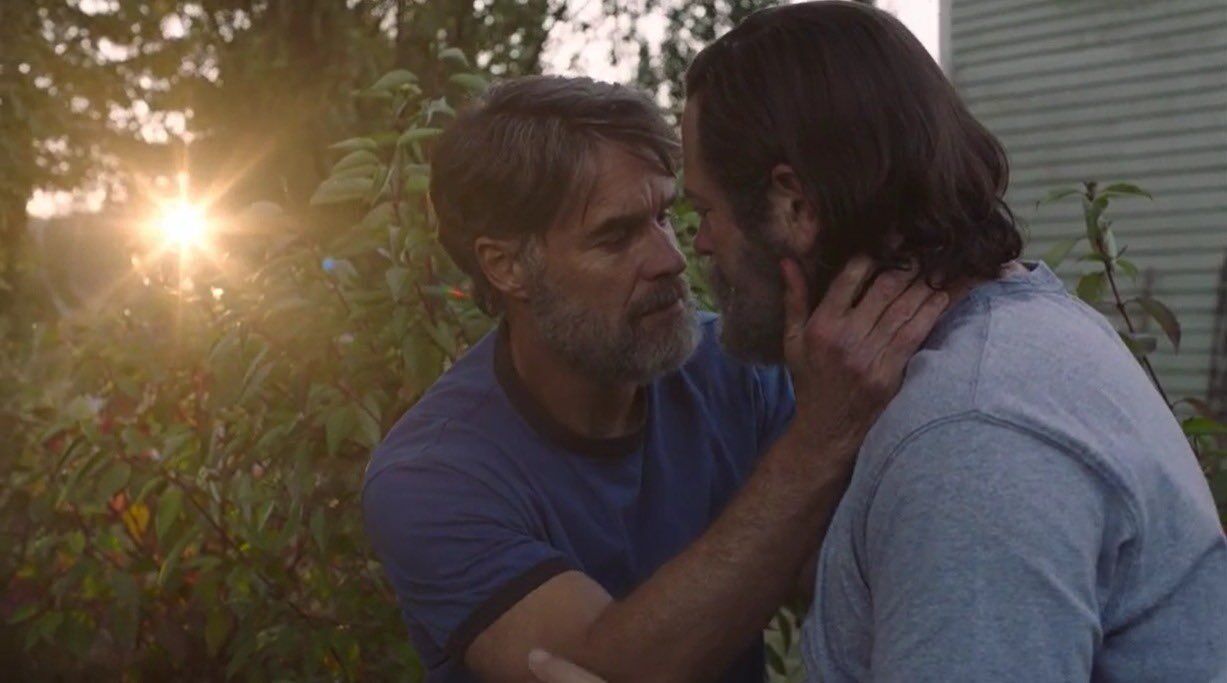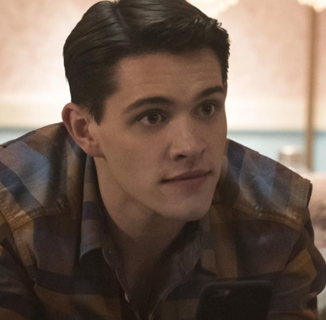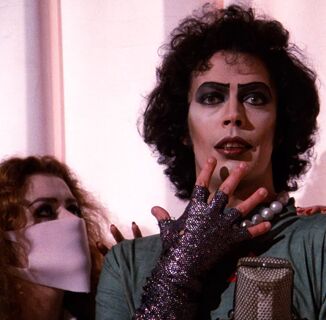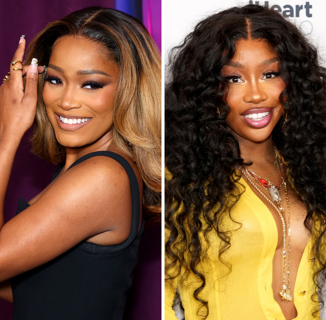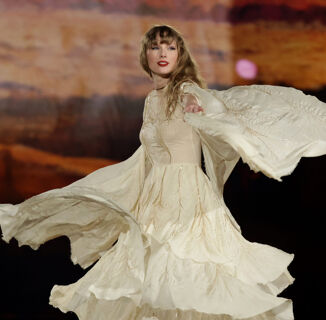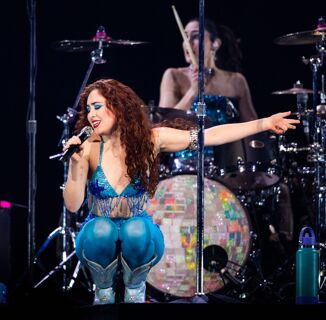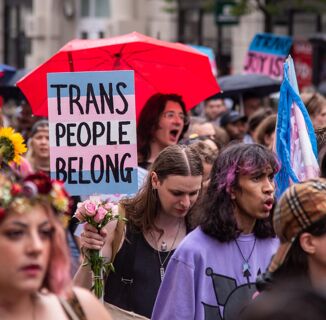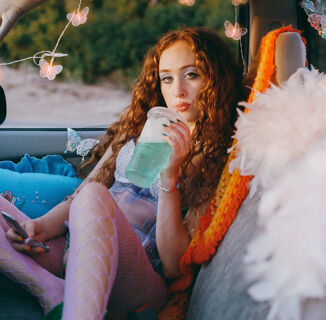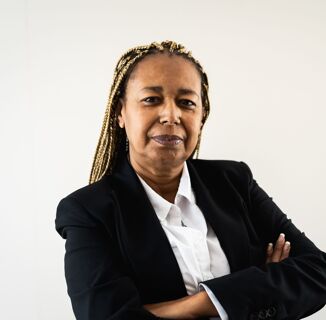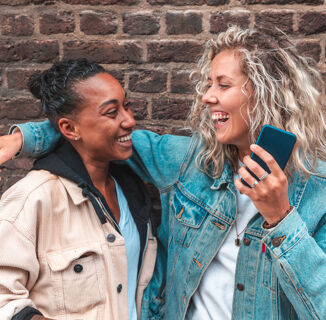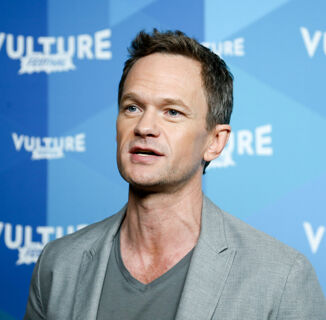Putting aside fungal zombies and hot DILFs for a second, The Last of Us is actually a story of love. We’re not just talking about the paternal love Joel develops for Ellie, or even the lust that most of us feel for Pedro “cool, slutty daddy” Pascal.
After the first Last of Us game implied that Ellie’s backstory was a queer one, an expansion pack released the following year confirmed it, and then 2020’s sequel went one better by giving Ellie an actual girlfriend called Dina.
LGBTQ+ gamers expecting to see this love story play out in HBO’s new adaptation will have to wait unfortunately, although early hints at Ellie’s queerness coupled with Bella Ramsey’s gender fluidity suggest that the show won’t ignore it. In fact, this new take on The Last of Us is already getting a bit fruity with another gay love story, one that marks a huge improvement over the games.
A little way into episode three, the show jumps back to September 30th, 2003, just a few days into the outbreak. There, we meet a man named Bill, played by Nick Offerman, who seems to be some kind of doomsday prepper. Four years later, it’s clear that Bill chose the right thing to obsess over because he’s still alive, albeit quite lonely in a small neighborhood that’s been barricaded off from all kinds of nasty.
Related: “The Last of Us” Episode 3 Gave Us a Touching Queer Romance and We Can’t Stop Crying
One man breaks through though, at least part way, until he’s caught in one of Bill’s traps. Bill’s naturally quite skeptical of Frank at first, just as we are, but a dangerous combination of loneliness and horniness break his resolve, and with that, Frank’s allowed into the house.
One shower and a somewhat awkward meal later, Frank starts to play Bill’s piano to the tune of Linda Ronstadt’s “Long Long Time”. Bill stops him, but then relents and plays the song himself with the kind of poise and gut-wrenching beauty that could bring a man to tears.
It me. I’m that man.
Bill let a stranger into his home during a zombie apocalypse, but it’s actually this moment where he’s really at his most vulnerable. Lyrics like, “I’ve done everything I know to try and make you mine/And I think it’s gonna hurt me for a long long time,” speak to Bill’s own sorrow in ways that catch both us and Frank off guard,
“So who’s the girl you’re singing about?” Frank asks, knowing full well that there is no “girl”. And with that, they kiss. But it’s not just a kiss. It’s years of fear and sadness and pent-up loneliness tightly wound into one sweet, perfect moment of release.
The pair cling to each other so tightly after, desperate to stay connected for just a moment longer. Anyone would feel the same in that moment, but the specific pain they’re feeling is magnified even more because they’re two older gay men who felt isolated even before the apocalypse came along.
With their walls let down, Bill and Frank go upstairs and then do what any “cool, slutty daddies” would do in their situation, even though Frank is quick to point out that he doesn’t have sex for meals — “Not even great ones.”
There’s so much tenderness in this moment still, something we rarely see in any depiction of gay sex onscreen, let alone between two middle-aged men in such big, mainstream fare.
That tenderness can still be felt when the show jumps forward three more years to them arguing over renovations for the “town”. It’s also there when Bill cautions Frank against making friends with Joel and Tess. And it’s there again another three years later when Bill tells him he was “never afraid” until Frank showed up and gave him something worth losing.
Inevitably though, tenderness gives way to violence when raiders show up that night and attack. But even then, their love endures. No matter what the outside world throws their way, Bill and Frank find a safe space in each other. That is, until disease robs Frank of his strength ten years later following one last time jump.
“Did you take your pills?” asks Bill. Frank’s too weak to open the bag, and he’s also too weak to climb the stairs now.
When Bill later carries him up to bed, it’s easy to forget that you’re watching a zombie show. And when Frank suddenly says, “This is my last day,” you forget that there’s anything else in the world except Bill and Frank’s story.
“Just give me one more good day,” asks Frank. And then we see it all unfold. Their one last perfect day.
Outfits are picked and rings are exchanged. Then, to top it all off, Bill and Frank share one final dinner together, almost exactly like the one they had on the day they met.
“This ain’t the tragic suicide at the end of the play,” Frank says as he downs some wine drugged with sleeping tablets. “I’m old. I’m satisfied. And you were my purpose.”
Between societal hate and the AIDS crisis, love between two older men just isn’t visible in the same way that it is for younger queer couples today. And that’s because it wasn’t allowed to exist.
At this point, we discover that Bill has drugged himself as well, unable to imagine a life without Frank. And then they go to bed, one last time, and I – I’m not crying. I’ve just got a spore or something in my eye…
Bill and Frank’s story doesn’t end like this in the game. There, a mean-spirited twist robs them of any and all joy that’s to be had. Illness robs Bartlett’s Frank of joy in the long run too, but here, the script focuses on love instead, something which was cruelly lacking from their original, unseen journey.
It’s not just any love either. This is a love that we rarely see anywhere, be it on screen or in real life for that matter. Between societal hate and the AIDS crisis, love between two older men just isn’t visible in the same way that it is for younger queer couples today. And that’s because it wasn’t allowed to exist.
Ok, yes, Bill and Frank’s story does also end with tragedy, although Frank would argue otherwise, and it’s no coincidence that Frank’s disease is left unnamed, as a kind of placeholder, if you will. But to see their connection up close, and them getting married no less, is going to help people see themselves regardless.
Younger queer people need to see a future for themselves that isn’t full of pain or fear because if you can’t see it existing out in the world, it’s hard to imagine it for yourself. And then there’s the countless queer people from older generations who were robbed of their chance to find this kind of happiness, to love each other for “a long, long time.” They deserve to see a story like this too, their story out in the world at last. ♦
Help make sure LGBTQ+ stories are being told...
We can't rely on mainstream media to tell our stories. That's why we don't lock our articles behind a paywall. Will you support our mission with a contribution today?
Cancel anytime · Proudly LGBTQ+ owned and operated
Read More in Entertainment
The Latest on INTO
Subscribe to get a twice-weekly dose of queer news, updates, and insights from the INTO team.
in Your Inbox

